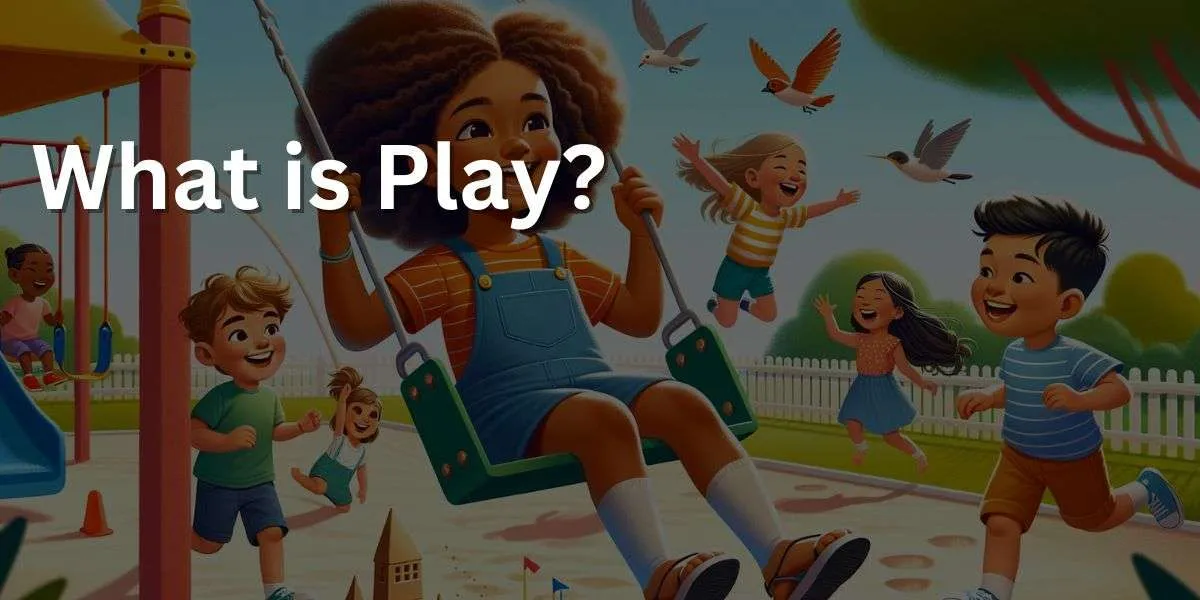Embarking on the exploration of What Is Play, one uncovers a universal and timeless activity that transcends age, culture, and species. More than just a form of leisure, play is a profound expression of curiosity, creativity, and learning.
Play is an essential part of childhood and a fundamental aspect of human development. It is a natural and instinctive behavior that allows children to explore, learn, and make sense of the world around them. Play is not just a leisure activity or a form of entertainment; it is a vital process that contributes to children’s physical, cognitive, social, and emotional development.
Interested in understanding the deeper layers of this seemingly simple activity? Journey with us as we delve into the intricacies, significance, and universality of play.
Key Takeaways: What Is Play?
- Nature of Play:
- Spontaneity:
- Play arises naturally and is not typically imposed.
- It is driven by intrinsic motivation, meaning individuals play for the sheer joy of it.
- Voluntariness:
- Play is a chosen activity, not an obligation.
- Participants enter and leave play scenarios at their will.
- Spontaneity:
- Importance of Play:
- Developmental Benefits:
- Play enhances cognitive, physical, social, and emotional development.
- It aids in building essential life skills, such as problem-solving, teamwork, and creativity.
- Stress Relief:
- Play serves as a natural outlet for stress and tension for both children and adults.
- It provides a break from routine and offers a sense of freedom.
- Developmental Benefits:
- Types of Play:
- Physical Play:
- Activities that engage the body, such as running, jumping, or dancing.
- Promotes physical fitness and coordination.
- Imaginative Play:
- Children create scenarios, roles, and narratives using their imagination.
- Enhances creativity, empathy, and understanding of the world.
- Constructive Play:
- Involves building or creating something, using toys, blocks, or even digital platforms.
- Enhances spatial skills, patience, and planning abilities.
- Physical Play:
- Play Across Ages:
- Infants:
- Engage in exploratory play, using their senses to understand the world.
- Toddlers:
- Shift towards parallel play, playing alongside peers without much interaction.
- Preschoolers:
- Dive into cooperative play, collaborating with others in shared play scenarios.
- Infants:
- Cultural and Social Aspects:
- Cultural Influences:
- Play themes, rules, and toys might vary across cultures, reflecting societal norms and values.
- Social Interaction:
- Play fosters social skills as children navigate roles, share toys, and resolve conflicts.
- Cultural Influences:
- Challenges to Play:
- Modern Lifestyles:
- Increased screen time, structured schedules, and safety concerns can limit unstructured play opportunities.
- The Role of Adults:
- While adult involvement can enrich play, over-direction can stifle creativity and independence.
- Modern Lifestyles:
Defining Play
Play can be described as any activity undertaken for enjoyment and recreation rather than a serious or practical purpose. It’s spontaneous, voluntary, and intrinsically motivated.
Play can take myriad forms, from physical games to imaginative scenarios, from solitary activities to group dynamics. Beyond entertainment, play serves a plethora of functions: it helps in cognitive development, enhances social skills, and provides an avenue for emotional expression. Whether in children or adults, animals or humans, play is a crucial aspect of life, contributing to well-being, learning, and social bonding. There are five most agreed-upon definitions of play :
Play in Humans
Play is a voluntary activity that is intrinsically motivated and has no obvious survival value. It is an activity that is done for its own sake, and not for any external reward or goal. Play is often associated with children, but it is also an important part of adult life.
Play can take many different forms, including sports, games, and creative activities such as music and art.
Play is a complex and multifaceted phenomenon that is difficult to define. However, some common characteristics are associated with play:
Play is voluntary
Play is intrinsically motivated
Play is non-literal and imaginative
Play involves an element of uncertainty or risk
Play is a source of pleasure and enjoyment
There are also cultural differences in the way that play is understood and practiced. For example, some cultures place a greater emphasis on competitive play, while others value cooperative play.
Similarly, some cultures view play as a way to prepare children for adulthood, while others see it as a way to preserve childhood innocence.
Despite these differences, play is a universal human activity that is essential for healthy development and well-being. Through play, individuals can explore their environment, develop social skills, and express their creativity and imagination.
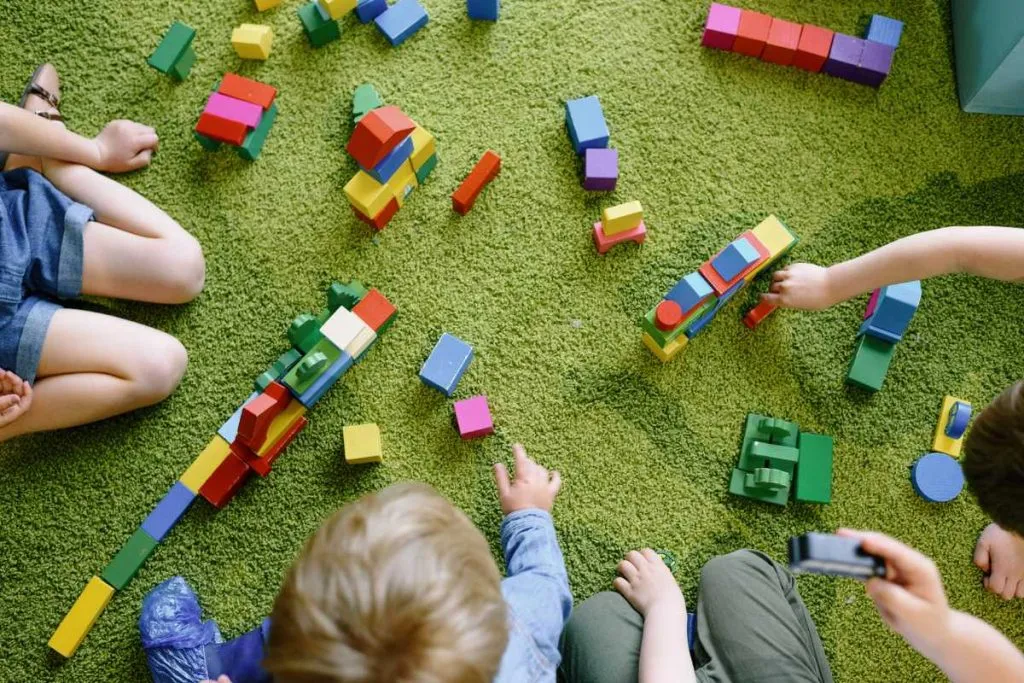
Physical Play
Physical play involves using the body to engage in activities such as running, jumping, climbing, and dancing. It can also include games like tag, hide-and-seek, and ball games. Physical play helps children develop gross motor skills, coordination, balance, and strength as well as their physical health.
At its core, physical play encompasses any activity that gets children moving and engages their muscles. It’s the energetic burst of a toddler chasing a ball, the meticulous balance of a child on a beam, and the joyful leaps during a game of tag.
Not only does physical play contribute to strength and coordination, but it also plays a pivotal role in cognitive and emotional development. Activities that fall under this umbrella, like climbing, jumping, or dancing, often require a blend of motor skills and mental planning. For instance, when kids play hopscotch, they’re not just hopping; they’re calculating distances, following sequences, and adapting to new challenges on the fly.
Beyond the obvious health benefits, such as improved cardiovascular health and muscle development, there’s a social dimension to consider. Group games like relay races or hide and seek instill teamwork, communication, and an understanding of rules. Through these interactions, children not only develop physically but also learn valuable life skills that will serve them well into adulthood. So, the next time you see kids engaged in a lively game outdoors, remember they’re doing more than just playing; they’re growing in every sense of the word!
Social Play
Social play involves interacting with other children, developing relationships, and learning social skills. This can include cooperative play, where children work together to achieve a common goal, or competitive play, where children compete against each other. Through social play, children learn how to take turns, share, communicate, negotiate, and resolve conflicts, which does help their mental health.
Ever wondered what makes those group games of hide-and-seek or collaborative building projects with blocks so special? Well, it’s all rooted in the beauty of social play. This form of play is all about interaction, where children engage with their peers, learning the art of communication, cooperation, and understanding social cues.
When kids dive into activities like role-playing, team sports, or board games, they’re not just having fun. They’re developing crucial social skills. Through these shared experiences, children learn the nuances of negotiation, taking turns, and empathizing with others. Imagine a child playing a game of pretend store. They’re not only imagining being a shopkeeper or a customer but also understanding roles, responsibilities, and the give-and-take of social interactions.
Beyond the skills, there’s an emotional depth to social play. Children feel a sense of belonging and acceptance when they play with others. They experience the joy of shared laughter, the challenge of disagreements, and the satisfaction of joint achievements. So, whether it’s a group of kids creating a make-believe world or just a simple game of catch, the threads of social connections are being woven, building the foundation for lifelong relationships and social understanding.
Object Play
Object play involves interacting with objects such as toys, blocks, and puzzles. This type of play allows children to explore and experiment with different materials, shapes, and sizes. Object play can also help children develop fine motor skills, problem-solving skills, and creativity.
It’s that delightful phase where a child’s world revolves around toys, sticks, stones, and just about anything they can get their tiny hands on. This type of play is all about exploring and manipulating objects to understand their properties and functionalities. It’s like every item becomes a puzzle piece in the grand scheme of a child’s ever-expanding understanding of the world.
When children engage in object play, they’re doing a lot more than just having fun. They’re honing their motor skills, problem-solving abilities, and creativity. Think about a toddler stacking blocks. With each block, they’re grappling with concepts like balance, weight, and spatial reasoning. Or consider a child turning a cardboard box into a spaceship, showcasing their budding imagination and ability to repurpose objects in novel ways.
Moreover, object play is a fantastic avenue for kids to learn about cause and effect. When they push a toy car and watch it roll, or when they press a button and hear a sound, they’re piecing together how actions lead to reactions. So, the next time you see a child deeply engrossed with a toy or a random object, remember they’re on a journey of exploration, making sense of the world one object at a time.
Imaginative Play
Imaginative play involves using the imagination to create scenarios and stories. This can include playing dress-up, pretending to be different characters, or creating imaginary worlds. Imaginative play helps children develop language skills, creativity, empathy, and problem-solving skills.
It’s a magical realm where children can be anyone, anywhere, doing anything they dream of. This kind of play unfolds when kids take on roles, act out scenarios, and use objects symbolically. It’s like watching a live theater where the actors, directors, and scriptwriters are all kids, and the stories are as boundless as their creativity.
Diving into imaginative play, children tap into their creativity and expressive skills. When a child dons a cape and claims to be a superhero, they’re not just dressing up; they’re building their self-confidence and understanding of heroic values. Similarly, when children play house, they’re mimicking adult roles, which gives them a glimpse into the world of responsibilities and relationships. This mirrors their desire to understand the world around them and their place within it.
It’s also fascinating to see how imaginative play aids in emotional development. By acting out different scenarios, children learn to navigate various feelings and situations. It becomes a safe space for them to explore emotions, face fears, and practice problem-solving. So, the next time you see a child chatting with an imaginary friend or setting up a tea party for their stuffed animals, cherish that moment. They’re not just playing; they’re crafting stories, learning, and growing in ways that will benefit them for years to come.
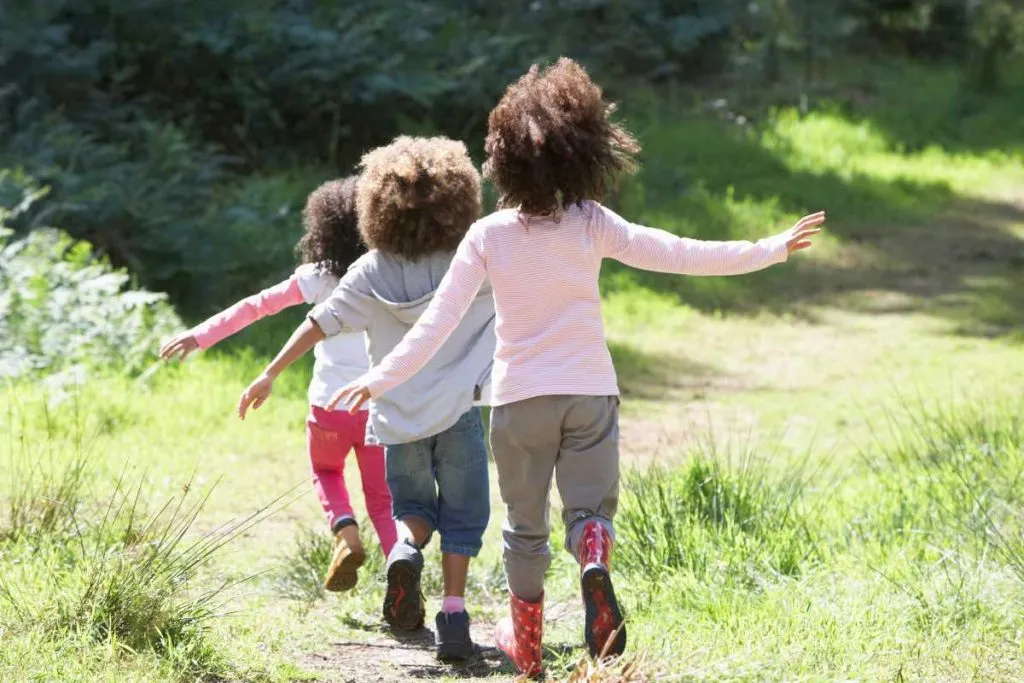
Benefits of Play
The benefits of play are vast and deeply impactful. Delving into the heart of playful activities, it becomes clear that play isn’t just a leisure activity; it’s a fundamental building block for a child’s holistic development.
Engaging in play fosters cognitive development in children. When they navigate through a maze, piece together puzzles, or embark on imaginative adventures, they’re also enhancing their problem-solving abilities and nurturing their creativity. These playful activities stimulate their brains, enabling them to think outside the box and come up with innovative solutions.
Furthermore, play isn’t just limited to cognitive growth; it’s instrumental in physical and emotional development as well. Active play, such as running or jumping, strengthens their muscle coordination and motor skills. Meanwhile, group games and role-playing scenarios teach them about empathy, cooperation, and social understanding. Every playful moment, whether solo or with peers, contributes significantly to their overall well-being and growth.
- Cognitive Development:
- Problem-Solving Skills:
- Play challenges children to think creatively and come up with solutions.
- Games with rules or puzzles promote logical thinking and decision-making.
- Language Skills:
- Communicative play, like pretend games, boosts vocabulary and expressive language.
- Children learn to articulate thoughts, negotiate roles, and narrate stories.
- Problem-Solving Skills:
- Physical Development:
- Motor Skills:
- Active play enhances fine and gross motor skills.
- Activities like climbing, jumping, or drawing refine coordination and balance.
- Health and Fitness:
- Physical play boosts cardiovascular health, muscle strength, and flexibility.
- It also aids in combating childhood obesity and promotes a love for active lifestyles.
- Motor Skills:
- Emotional Development:
- Self-Esteem and Confidence:
- Achieving goals in play or mastering a game boosts a child’s confidence.
- They learn to take risks and deal with both success and failure.
- Emotional Regulation:
- Play offers a safe space for children to express and manage their emotions.
- Role-playing helps them understand and empathize with others’ feelings.
- Self-Esteem and Confidence:
- Social Development:
- Social Skills:
- Group play teaches children to cooperate, share, and take turns.
- They learn to navigate conflicts, advocate for themselves, and respect others.
- Understanding Roles and Norms:
- Through pretend play, children explore various societal roles and norms.
- They get insights into the adult world, professions, and relationships.
- Social Skills:
- Creativity and Imagination:
- Innovation:
- Play allows children to experiment, innovate, and think outside the box.
- World Exploration:
- Through imaginative play, they create scenarios, exploring different settings and characters.
- Innovation:
- Resilience and Adaptability:
- Coping Mechanisms:
- Play helps children process traumatic events, providing a therapeutic outlet.
- They learn to adapt, overcome challenges, and become resilient.
- Coping Mechanisms:
- Academic Success:
- Preparation for School:
- Play-based learning introduces children to basic academic concepts.
- Skills gained from play, like focus and perseverance, aid in formal education.
- Preparation for School:
Cognitive Benefits of Play
Through play, children can develop their cognitive abilities, which are crucial for their academic success. Some of the cognitive benefits of play include:
Improving problem-solving skills
Developing creativity and imagination
Enhancing memory and concentration
Strengthening language and communication skills
Social Benefits of Play
Play is an excellent way for children to develop their social skills and build relationships with others. Some of the social benefits of play include:
Learning how to cooperate and collaborate with others
Developing empathy and understanding for others
Practicing conflict resolution and problem-solving skills
Building self-esteem and confidence
Emotional Benefits of Play
Play can also help children develop their emotional intelligence and regulate their emotions. Some of the emotional benefits of play include:
Developing self-awareness and self-expression
Learning how to manage stress and anxiety
Developing empathy and understanding for others
Building resilience and coping skills
Physical Benefits of Play
Play is an excellent way for children to stay active and develop their physical abilities. Some of the physical benefits of play include:
Improving coordination and balance
Developing gross and fine motor skills
Promoting healthy eating and sleeping habits
Reducing the risk of obesity and other health problems
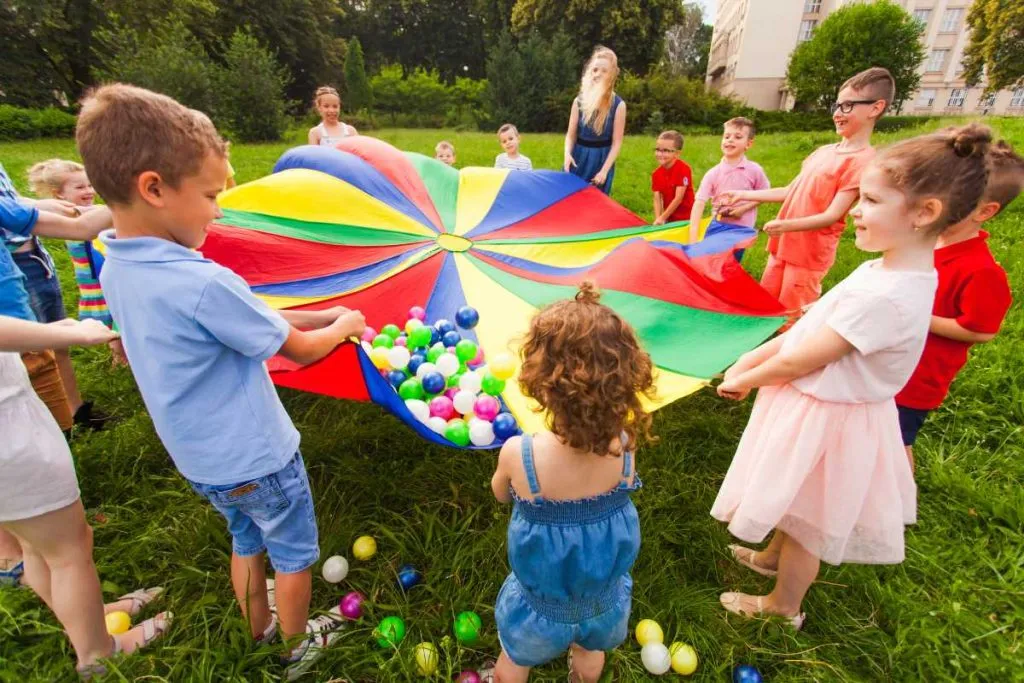
Play in Childhood Development
Play is a crucial aspect of a child’s development. It is through play that children learn about themselves, their environment, and the world around them. Play allows children to explore, experiment, and take risks in a safe and controlled environment. It also helps them develop important social, emotional, and cognitive skills that are essential for their future success.
Research has shown that play can have a significant impact on a child’s brain development. During play, children’s brains are highly active, and they are constantly making new connections and strengthening existing ones.
Play also helps develop executive function skills, such as attention, memory, and self-regulation, which are important for academic achievement and life success.
Types of Play experiences
Several types of play are important for a child’s development. Unstructured, free play allows children to follow their own interests and explore their environment in their own way.
Structured play, on the other hand, provides children with opportunities to learn new skills and engage in activities that are more challenging. Both types of play are important for a child’s development and should be encouraged.
Play also has a significant impact on a child’s social and emotional development. Through play, children learn how to interact with others, develop empathy and understanding, and regulate their emotions.
Play also provides children with opportunities to practice problem-solving, negotiation, and conflict-resolution skills, which are important for developing healthy relationships.
Parents and caregivers play an important role in promoting play and supporting a child’s development. They can provide children with a safe and stimulating environment that encourages exploration and experimentation. They can also provide children with opportunities to engage in different types of play and provide them with the tools and resources they need to be successful.
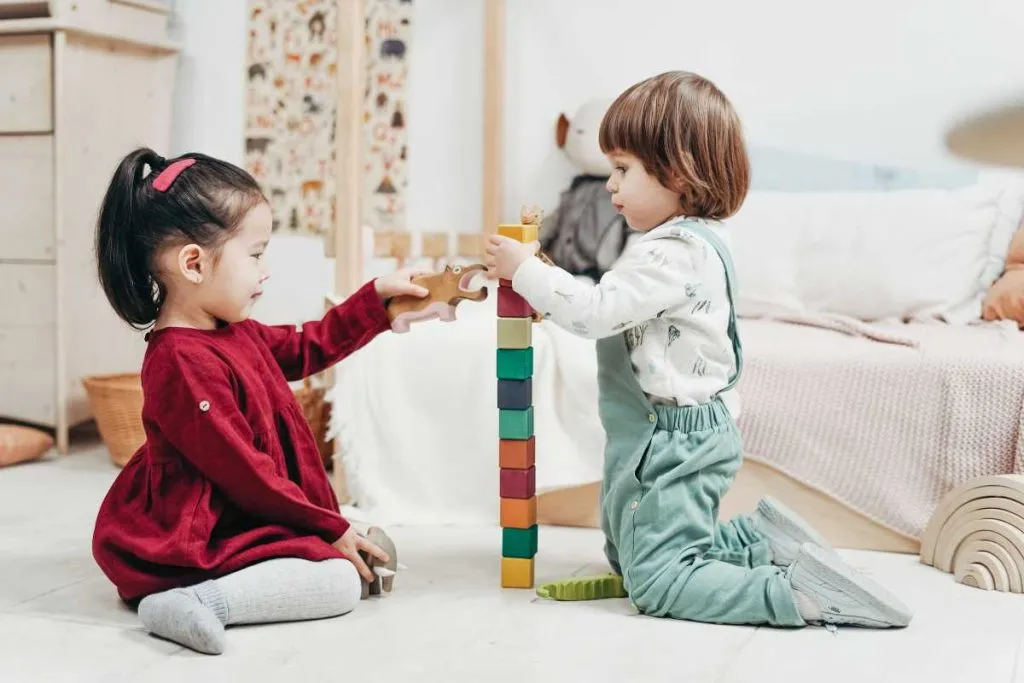
What Describes Play?
Play is a fundamental, voluntary, and spontaneous activity typically associated with recreational pleasure and enjoyment. It is a critical aspect of a child’s learning and development. Here are some key characteristics that describe play:
Enjoyable and Fun: Play is an activity that is intrinsically enjoyable and motivating. The pleasure derived from play often comes from the process rather than achieving an end goal.
Spontaneous and Voluntary: Play is usually self-chosen and self-directed. Children engage in play willingly and it often happens naturally without external prompts.
Active Engagement: Play involves active engagement, which can be physical, cognitive, or emotional. Children may move around, strategize, or express emotions during play.
Imaginative: Play often involves imagination and creativity. Through make-believe games and role-playing, children can explore different roles, scenarios, and perspectives.
Process-Oriented: Play is about the experience and the process, rather than the outcome. It doesn’t have to lead to a specific goal or product, though it can still be interactive play or active play. Children playing can just be about fun but it will still help in their child development.
Rules: While many types of play are free-flowing and unstructured, some play, like games, may have rules that children agree to follow.
Safe Environment: Play typically occurs in a context where the child feels safe to experiment, take risks, and make mistakes. When a child plays, with others or their own play, they should be free to learn important life skills and know that with some play there is no right or wrong way.
Play is an essential part of childhood and is recognized by the United Nations High Commission for Human Rights as a right of every child. The early childhood research quarterly states it is crucial for the development of social skills, cognitive abilities, physical health, emotional well-being, creativity, problem-solving skills, and learning.
Play is an essential aspect of a child’s growth and development, encompassing various stages and forms that evolve as they grow. The early stages of play begin with unoccupied play, where infants might seem like they’re doing nothing, but they’re actually observing and soaking in their environment. As toddlers start to engage with their surroundings, they might exhibit different schemas in their play. These schemas, ranging from transporting to enveloping, offer insight into their cognitive development.
As children grow, they transition through different types of social play. Initially, they may engage in onlooker play, watching others without joining in, or parallel play, where they play side by side with peers but not necessarily together. This gradually leads to group play and peer play, where interactions become more complex and cooperative. It’s fascinating to see how children navigate these stages, understanding shared rules and developing social skills.
The tools and toys children play with also play a crucial role in their development. For instance, STEM toys are designed to foster skills in science, technology, engineering, and math, preparing them for future challenges. Moreover, free play for preschoolers is vital, as it promotes creativity, problem-solving, and emotional resilience. Understanding why play is important can help parents and caregivers provide the right environment and resources for children to thrive.

